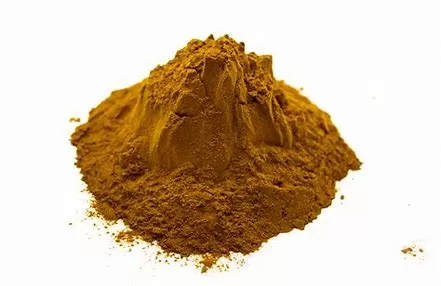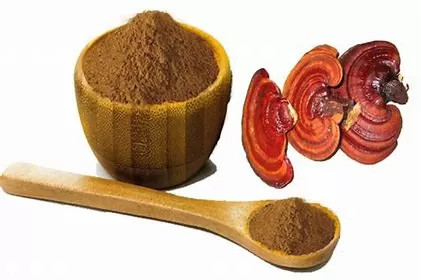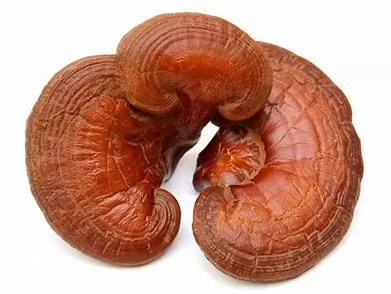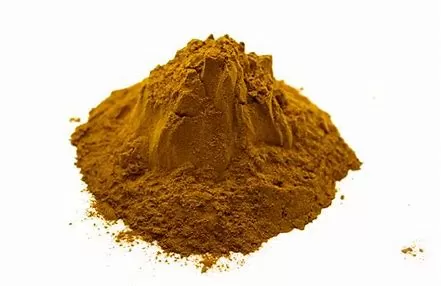- 0086-571-85302990
- sales@greenskybio.com
Does Reishi Mushroom Aid in Fat Burning? An In-Depth Look
2025-04-02
In the quest for natural solutions to weight management, many turn to traditional remedies and natural supplements for a safe and effective edge. Among these, reishi mushroom, also known as Ganoderma lucidum, has garnered attention for a range of health benefits, including potential weight management support. Reishi, revered in traditional Chinese medicine, is often hailed for its immune-boosting and adaptogenic properties. This article explores the question: Does reishi mushroom help burn fat, and can it be an effective tool in weight management?
Understanding Reishi Mushroom
Reishi mushroom is a type of polypore fungus, distinguished by its glossy, varnished cap and woody texture. Native to East Asia, reishi has been used for centuries in traditional medicine, commonly dubbed the "mushroom of immortality." Its bioactive compounds, including polysaccharides, triterpenoids, and peptidoglycans, are believed to confer health benefits ranging from immune support to anti-inflammatory effects.
Mechanisms of Action Related to Weight Management
1. Metabolic Regulation: Some studies suggest that reishi mushroom may influence metabolic processes, potentially leading to weight loss. The bioactive compounds in reishi could help modulate fat metabolism and influence the way the body stores and uses energy, potentially increasing fat oxidation and energy expenditure.
2. Anti-Inflammatory Effects: Chronic inflammation is increasingly recognized as a significant factor that can contribute to obesity and metabolic syndrome. Reishi’s anti-inflammatory properties might contribute to weight management by addressing inflammation-related weight gain.
3. Regulation of Blood Sugar: Another pathway through which reishi might impact weight is by regulating blood sugar levels. Stable blood sugar can potentially reduce cravings and improve metabolic efficiency, which may aid in weight control.
4. Gut Health: A healthy microbiome is crucial for metabolic health, and reishi is thought to positively influence gut flora. Improving gut health can have downstream effects on weight management, as a balanced microbiome is essential for efficient digestion and nutrient absorption.
Scientific Evidence and Studies
The research directly linking reishi mushroom to fat burning and weight loss in humans is still emerging, though several studies provide insight into its potential benefits:
- A study published in the journal "Nature Communications" in 2015 investigated the effects of Reishi mushroom extract on obesity. The study found that reishi supplementation altered the composition of the gut microbiota in mice, which in turn led to reduced fat accumulation and weight gain.
- In a study published in "The FASEB Journal," researchers examined reishi’s ability to lower blood glucose and lipid levels. Findings suggested that reishi polysaccharides improved insulin sensitivity and reduced plasma glucose levels in diabetic mice, indicating potential benefits in managing weight through improved metabolic health.
- Another research, presented in the "Journal of Ethnopharmacology," highlighted reishi’s role in enhancing lipid metabolism and reducing fat accumulation in obese mice, supporting reishi's potential as a metabolic regulator.
While these studies offer promising insights, it is crucial to emphasize that much of the research is preclinical, relying heavily on animal models. More human-based studies are needed to substantiate these findings and fully understand the weight management potential of reishi mushrooms.
Practical Considerations for Using Reishi
1. Supplement Formulation: Reishi is available in various forms, including powders, capsules, and tinctures. Choosing a high-quality, certified supplement is important for effectiveness and safety. Look for products that specify the concentration of active compounds, such as polysaccharides and triterpenoids.
2. Dosage: The appropriate dosage varies depending on the form and concentration of reishi. It is generally recommended to follow dosages provided on product labels or consult with a healthcare provider for tailored advice.
3. Lifestyle Integration: Reishi should not be viewed as a standalone solution for weight loss but rather part of a holistic approach that includes a balanced diet, regular exercise, and other healthy lifestyle choices.
4. Consultation: Individuals with existing health conditions or those taking medications should consult with a healthcare professional before incorporating reishi into their regimen, given its potential for interactions.
Conclusion
While reishi mushroom shows potential for supporting weight management, particularly through metabolic and inflammatory pathways, it is essential to approach its use with realistic expectations. The science suggests potential benefits in terms of gut health, metabolic balance, and inflammation reduction, all of which are crucial factors in weight management and fat metabolism.
As research continues to evolve, including more human studies, reishi could be considered a complementary part of a broader weight management strategy. Its traditional uses and emerging scientific backing for health benefits make reishi an intriguing option for those seeking natural support in their wellness journey.
Ultimately, leveraging reishi as part of a comprehensive lifestyle approach, combined with professional guidance, may offer the best chance for successful weight management and health improvement. While promising, reishi should be used as part of a balanced lifestyle, one that prioritizes whole-body health, sustainable habits, and individualized care.
- ▶ Hesperidin
- ▶ citrus bioflavonoids
- ▶ plant extract
- ▶ lycopene
- ▶ Diosmin
- ▶ Grape seed extract
- ▶ Sea buckthorn Juice Powder
- ▶ Beetroot powder
- ▶ Hops Extract
- ▶ Artichoke Extract
- ▶ Reishi mushroom extract
- ▶ Astaxanthin
- ▶ Green Tea Extract
- ▶ Curcumin Extract
- ▶ Horse Chestnut Extract
- ▶ Other Problems
- ▶ Boswellia Serrata Extract
- ▶ Resveratrol Extract
- ▶ Marigold Extract
- ▶ Grape Leaf Extract
- ▶ blog3
- ▶ blog4
- ▶ blog5
-
Does reishi balance hormones?
2025-04-02
-
Daily Use of Reishi: Safety and Benefits
2025-04-02
-
Does Reishi Mushroom Make You Look Younger?
2025-04-02
-
Does Reishi Mushroom Extract Help You Sleep?
2025-04-02
-
What is Reishi Mushroom Extract Used For?
2025-04-02
-
Grapefruit Seed Extract Powder
2025-04-02
-
Clove Powder
2025-04-02
-
Saffron Extract Powder
2025-04-02
-
Mulberry leaf Extract
2025-04-02
-
Yam Extract
2025-04-02
-
Boswellia Serrata Extract
2025-04-02
-
Konjac Powder
2025-04-02
-
Carrageenan Extract Powder
2025-04-02
-
Chasteberry Extract
2025-04-02
-
Soy Extract
2025-04-02






























